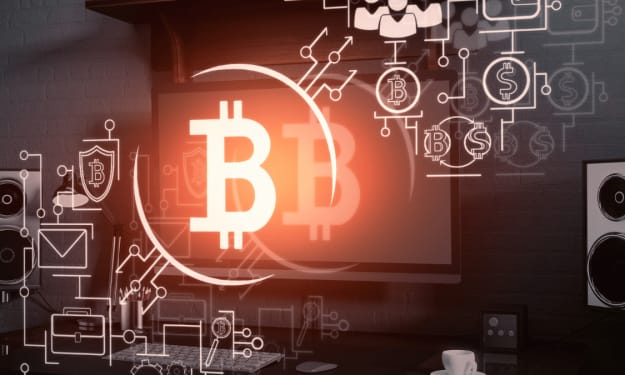Decentralized Finance Exchange Development: Unlocking the Future of Finance
Discover the revolutionary world of decentralized finance exchange development.

The financial industry has witnessed a paradigm shift in recent years, and one of the most groundbreaking advancements is the emergence of decentralized finance (DeFi) exchanges. Unlike traditional financial systems that rely on intermediaries and centralized authorities, DeFi exchanges are built on blockchain technology, enabling peer-to-peer transactions and offering a more open, transparent, and inclusive financial ecosystem.
In this article, we embark on a journey to understand the world of decentralized finance exchange development. We will explore the core concepts, benefits, and potential risks associated with DeFi platforms. Furthermore, we will provide an in-depth analysis of the technology behind these exchanges and how they can reshape the future of finance.
Understanding Decentralized Finance:
Decentralized finance, or DeFi, refers to a system of financial applications and platforms built on blockchain networks. Unlike traditional finance, where intermediaries control and govern transactions, DeFi leverages smart contracts to automate and execute transactions without the need for middlemen. This technology enables users to access financial services, such as lending, borrowing, trading, and yield farming, in a decentralized and permissionless manner.
How DeFi Exchanges Work?
DeFi exchanges operate on decentralized networks, enabling users to trade digital assets directly with one another. These exchanges do not rely on a central authority to hold users' funds; instead, they utilize smart contracts to facilitate the execution of trades. Users retain control of their private keys, providing them with full ownership and security of their assets.
The Advantages of DeFi Exchanges:
DeFi exchanges offer several advantages over traditional centralized exchanges. Firstly, they provide greater financial inclusion, allowing anyone with an internet connection to access financial services. Additionally, DeFi exchanges offer increased transparency, as all transactions are recorded on the blockchain and visible to the public. Furthermore, these exchanges eliminate the need for intermediaries, reducing costs and increasing the speed of transactions.
Security in Decentralized Finance:
Security is a paramount concern in the DeFi space. While blockchain technology provides inherent security features, it is essential to adopt best practices in smart contract development and auditing. Additionally, decentralized autonomous organizations (DAOs) play a significant role in DeFi security, as they allow the community to collectively make decisions regarding protocol upgrades and security measures.
The Role of Smart Contracts:
Smart contracts are self-executing contracts with predefined rules written directly into code. They play a central role in DeFi exchanges, automating processes such as trade settlements, loan agreements, and yield farming. Smart contracts enhance efficiency, reduce human error, and increase the overall reliability of DeFi platforms.
Interoperability in DeFi:
Interoperability is a critical aspect of DeFi development, as it enables different blockchain networks to communicate and share data seamlessly. Achieving interoperability ensures that assets from one blockchain can be used on another, enhancing liquidity and expanding the scope of DeFi services.
Governance in Decentralized Finance:
Decentralized finance operates under a decentralized governance model, where decisions regarding protocol upgrades and changes are made collectively by the community. Participants in DeFi platforms have voting power proportionate to their token holdings, ensuring a more democratic and community-driven ecosystem.
Regulatory Landscape for DeFi:
The regulatory environment surrounding DeFi is still evolving, with various countries and jurisdictions adopting different stances. Striking a balance between innovation and consumer protection remains a challenge for regulators. The development of clear and adaptable regulations will be crucial for the sustainable growth of DeFi.
Future Outlook of DeFi:
The future of decentralized finance looks promising, with continuous innovation and growing interest from both retail and institutional investors. As DeFi exchanges address security concerns, scalability issues, and regulatory challenges, they have the potential to disrupt the traditional financial system fundamentally. Embracing decentralization and blockchain technology, DeFi could usher in a more accessible, efficient, and equitable global financial ecosystem.
FAQs:
What is decentralized finance (DeFi)?
Decentralized finance, or DeFi, refers to a system of financial applications and platforms built on blockchain networks that operate without intermediaries.
How do DeFi exchanges work?
DeFi exchanges operate on decentralized networks, allowing users to trade digital assets directly with one another using smart contracts.
What are the advantages of DeFi exchanges?
DeFi exchanges offer greater financial inclusion, transparency, and lower transaction costs compared to traditional centralized exchanges.
What are the risks associated with DeFi?
DeFi platforms face security risks due to potential smart contract vulnerabilities and lack of regulation.
How can DeFi platforms enhance security?
Adopting best practices in smart contract development and leveraging decentralized autonomous organizations (DAOs) can enhance security in DeFi.
Why is interoperability important in DeFi?
Interoperability allows different blockchain networks to communicate and share data, increasing liquidity and expanding DeFi services.
Conclusion:
Decentralized finance exchange development has unlocked the potential for a more inclusive and transparent financial ecosystem. By leveraging blockchain technology and smart contracts, DeFi exchanges are reshaping the way we interact with money. As this revolutionary space continues to evolve, addressing security, scalability, and regulatory challenges will be pivotal for its widespread adoption.






Comments
There are no comments for this story
Be the first to respond and start the conversation.